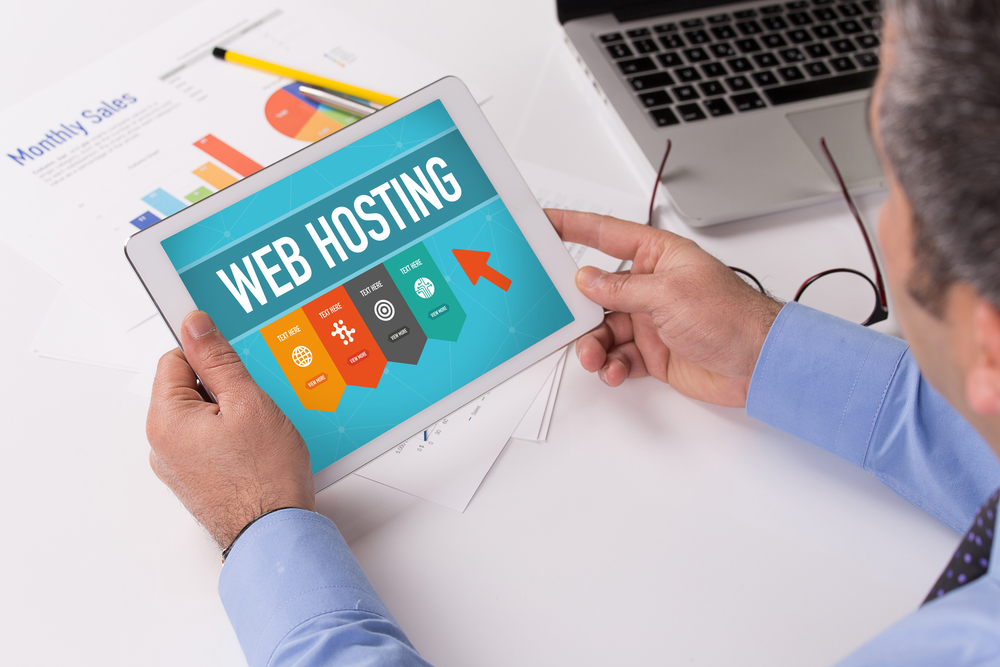There are currently more than a billion active websites and blogs on the internet today. Each of them having their own domain name along with a web hosting account to make sure their content is accessible throughout the world. When you think about how many sites are on the internet today and how each of them has a unique domain name and associated hosting account, it’s quite amazing.

When getting your small business online, setting up your domain name and web hosting are two important decisions that you will also have to make. The first time around, researching and finding the best web hosting company for your business can be quite overwhelming. There are many different things to consider at when it comes to web hosting, and today we are going to outline all of the most important factors in this article.
When it comes time to set up hosting for your small business, we want to help you make the decision and setup process as simple as possible. Read through our quick recommendations below on what to look for when comparing the best web hosting for small business, and also making sure you go with one that will grow alongside your business in the process.
Web Hosting Pricing Structure
More often than not, the first thing an entrepreneur, individual, or business is going to look at when choosing a hosting solution is the actual price. These beginning phases of getting your business online are important, but don’t sacrifice your business security and reputation to save a few dollars. What most people need to realize is that the majority of web hosting plans are quite similar in the services they offer, but also the pricing structure as well. Don’t be surprised if you come across a wide range of providers that offer shared hosting plans for under $10 per month.
If you have an e-commerce store, are accepting online payments, or are pushing thousands of visitors through your site daily, then you might want to explore your options with dedicated hosting or having your own VPS. Even when you start to look at these advanced hosting solutions that are more powerful, you are still looking at only cost of around $50+ per month. The great thing about web hosting, is that it’s usually very customizable and you can actually grow your hosting plans as your business grows over time without huge time and investment agreements being in place.
Built with WordPress in Mind

Before going live with your site, you should have an idea of the type of content you are going to create, what you want people to do when they access your site, and also the platform that you’ll be using to create and manage your site.
Also Read
WordPress is the number one content management platform on the internet today, and it currently powers more than 30% of the sites on the internet. At the same time, it’s also extremely easy to learn a use, while requiring no coding or design skills.
Just like there are different content management solutions, there are also web hosting plans catered specifically for WordPress sites and other programming or software solutions. This is something all small businesses should also consider when looking for a hosting company. Not all hosting plans are the same, so the more you know about your site and how you want it to run, the better the choice you can make when it comes to choosing your provider.
Reliability, Reviews & Reputation
We can summarize this last section as the 3 R’s – as in the reliability, reviews, and the reputation of the web hosting company you are looking at using.
Reliability is always going to be one of the most important things to look at. If your website is down for just 1% of the time, that equates to more than three days over the course of a year. This is something that no online business can afford to experience. Even having your site down for more than .0001% is too much. Go with a host that has a proven uptime history. Down.com is a great resource for reviewing the uptime of various web hosts.
Online reviews are also one of the best ways to perform the necessary research on a hosting company, because you are looking at what actual customers are saying. When it comes to looking for reviews online, be sure to read through various sites, as some review sites might just be looking to get a commission by referring new customers to a hosting site.
The last thing you need to look at is the reputation of a company. Along with looking at reviews, you can also pull up data reports that show how fast websites are loading from a specific host, while also seeing if there are any previous down times, hackings, or payment and performance issues. Be sure to consider all three of these elements when looking into a new hosting provider.
Your Online Business is Everything. Invest in Your Web Hosting
Once you have your business online, it’s important that site visitors have the best experience and first impression possible. For this reason alone, you want to go with a reliable hosting site that always has your site online and running as fast as possible. Trying to save a few dollars a month on hosting is one of the worst ways to save money, while potentially sacrificing your business in the process.
Just like your domain name is something that you will likely have for the lifetime of your site or online business, your web host is going to fall into that same category. Yes, you can change your web host at any time, but it’s not an easy process.
Be sure to consider all of the tips that we laid out in this article and you will soon find yourself with a reliable web hosting company that will hopefully host your site for years to come.
